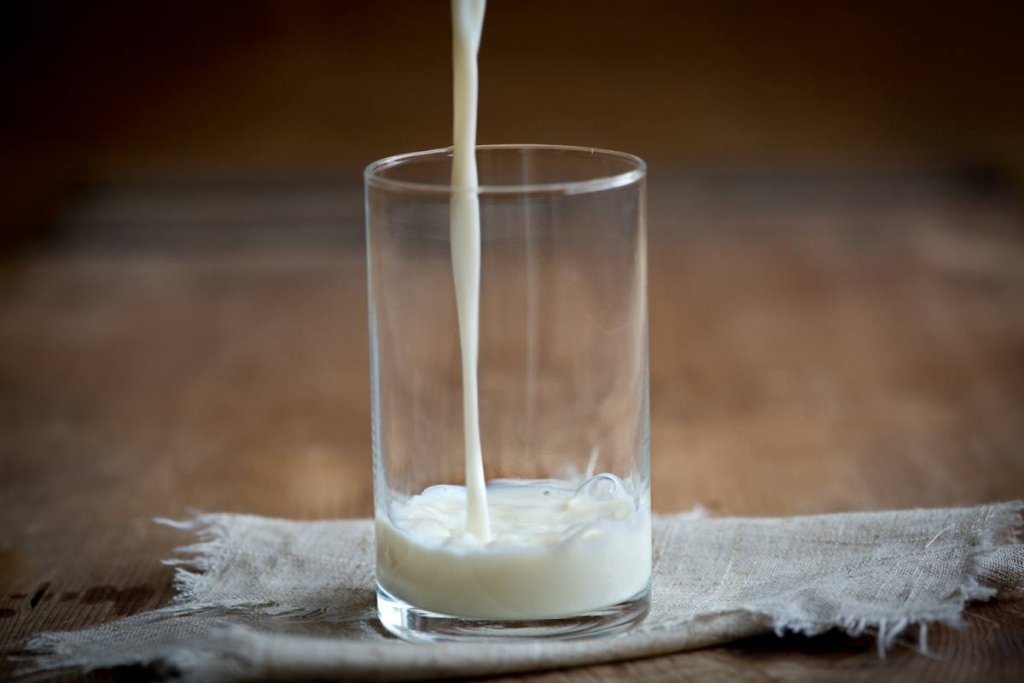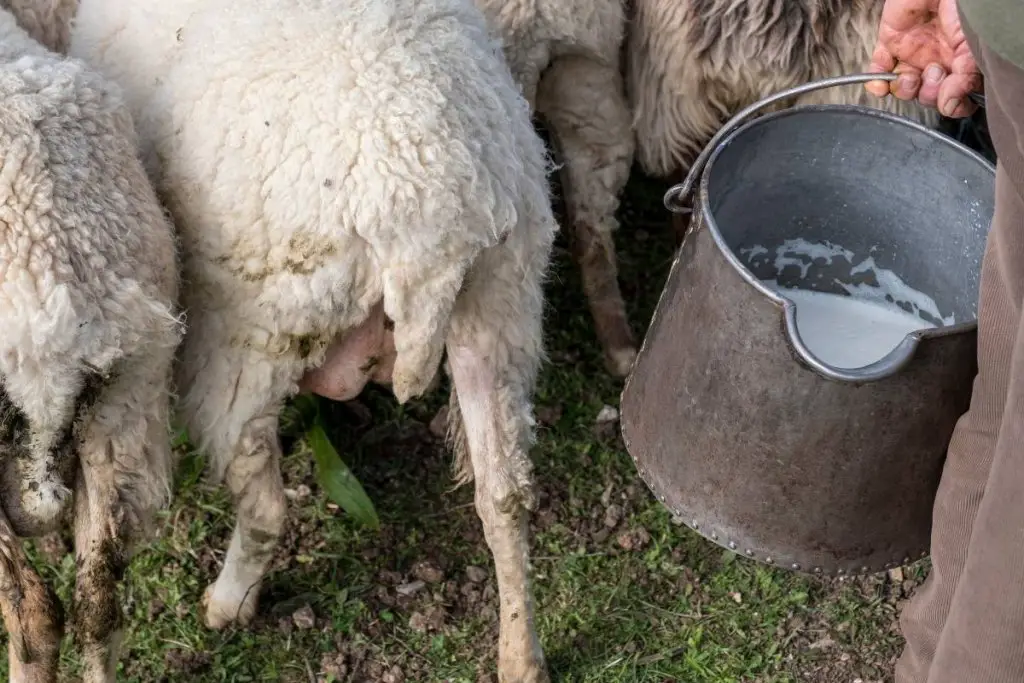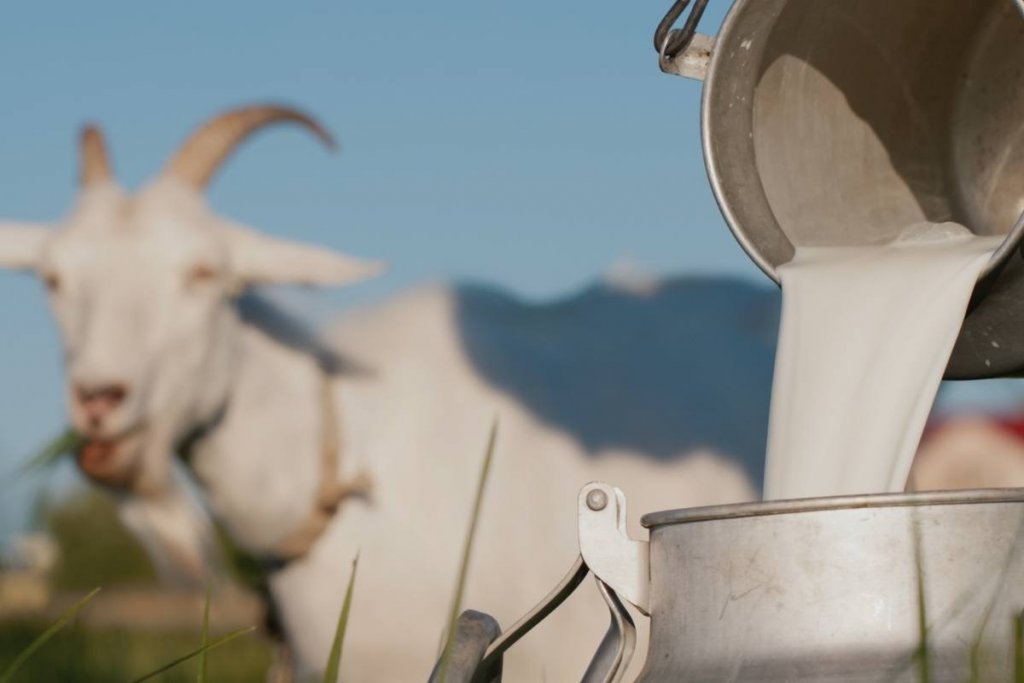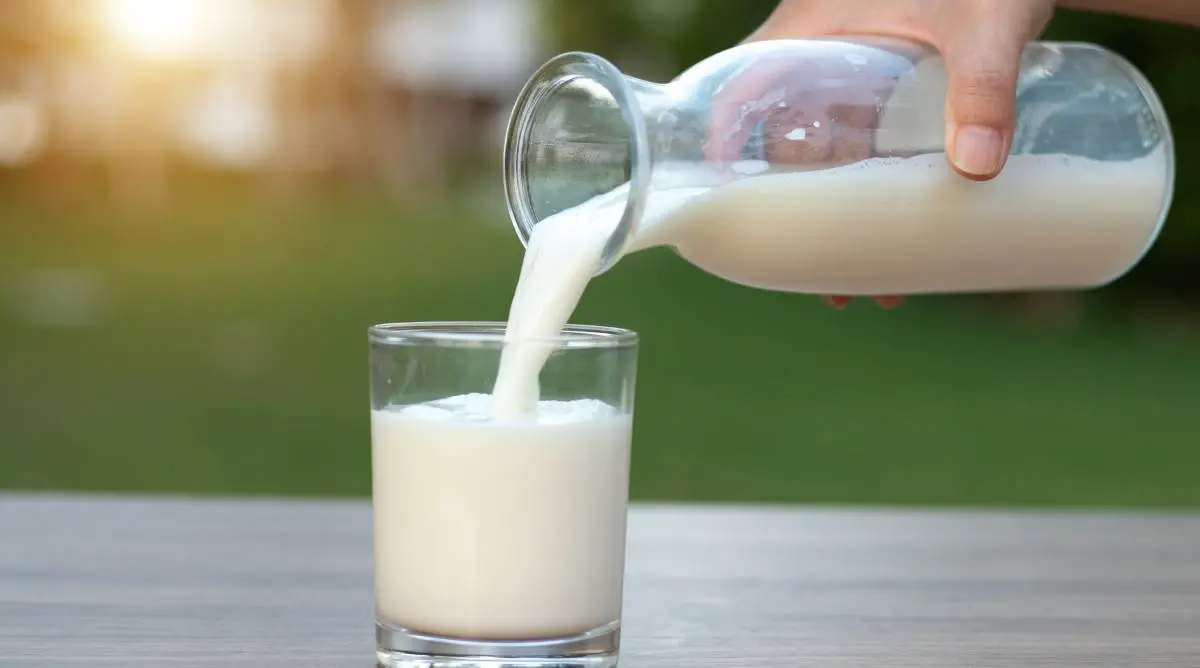Sheep milk is highly nutritious and includes a wide range of minerals and vitamins. It contains bioactive substances that boost human health. Sheep milk is more nutritious and digestible than cow and goat milk.
Numerous studies have shown that sheep milk provides many health benefits, including cancer prevention and boosting reproductive health.
Table of Contents
Sheep Milk Nutrition Facts
Sheep milk comprises a rich amount of essential amino acids, vitamins, fats, and minerals like potassium and calcium.
For decades, milk from sheep has been a valuable component in Mediterranean and Middle East diets.
Sheep milk is a creamy, nutritious food that should form part of your diet. However, it’s not as readily available as cow’s milk and is, therefore, more pricey.
Here are the nutritional components of sheep milk per 100g serving:
| Component | Description |
| Calories | 108kcal |
| Calories from Fat | 62kcal |
| Total fat | 7g |
| Saturated Fat | 4.603g |
| Trans Fat | 0 |
| Polyunsaturated Fat | 0.308g |
| Monounsaturated Fat | 1.724g |
| Cholesterol | 27mg |
| Sodium | 44mg |
| Protein | 5.98g |
| Total Carbohydrates | 5.36g |
| Dietary Fiber | 0g |
| Sugar | 0 |
| Calcium | 193mg |
| Potassium | 137mg |
| Iron | 0.1mg |
| Vitamin A | 44mcg |
| Vitamin C | 4.2mg |
The nutritional profile of sheep milk differs from one breed to another. Some breeds of sheep produce milk with more butterfat and protein than others.
Lacaune sheep milk has the highest butterfat content (7.21%), while Katahdin and Finnsheep milk has 0% butterfat.
British Milk sheep produce milk with the highest protein content (6.9%), compared to 0% in Katahdin and Finnsheep milk.
Vitamins in Sheep’s Milk

Sheep’s milk is a rich source of vital vitamins, including the B-complex vitamins, Vitamin A, and Vitamin C.
Here’s a list of vitamins found in sheep’s milk and their content per 100g:
- Vitamin A: 0.044mg
- Vitamin B1 (Thiamine): 0.065mg
- Vitamin B2 (Riboflavin): 0.355mg
- Vitamin B3 (Niacin): 0.417mg
- Vitamin B6: 0.06mg
- Vitamin B9 (Folic acid): 0.007mg
- Vitamin C: 4.2mg
Fat Content of Sheep’s Milk
Sheep milk has a high-fat content, comprising 7g total fat in 100g serving.
The fat content in sheep’s milk is higher than in cow’s and goat’s milk. This is because sheep milk contains more fatty acids and linoleic acid.
However, these are ‘good’ fats, comprising short and medium-chain fatty acids (triglycerides) with several health benefits. In addition, fat-soluble vitamins, including Vitamins A, D, and E, form part of the fats in sheep’s milk.
Here’s a break-down of the fats in sheep’s milk:
- Saturated Fat: 4.603g
- Trans fat: 0g
- Polyunsaturated Fat: 0.308g
- Monounsaturated Fat: 1.724g
Although sheep’s milk has more fatty acids, the fat globules are small-sized. That means they’re more digestible and improve the milk’s homogeneity. They also boost lactose absorption, making sheep’s milk tolerable for lactose-intolerant individuals.
The high-fat content of sheep milk makes it an excellent option for making cheese. The high amounts of proteins (casein) and solids in sheep’s milk enhance its clotting process during cheese production.
Sheep Milk Facts

Here are a few more facts about sheep milk:
Sheep milk is not inflammatory
Both sheep and cow milk contain casein proteins. However, only cow milk has the A1 β-casein, the type of protein that causes inflammation, especially in the gut. Contrastingly, sheep milk has A2 β-casein protein which is non-inflammatory.
Sheep milk contains anti-inflammatory, antiviral, and antibacterial biopeptides.
Sheep milk is better for you than cow milk
Sheep milk is better for you than cow milk because:
- It’s more digestible.
- It’s non-inflammatory.
- It’s creamier and has a milder flavor.
- It’s naturally homogenized.
- It has a higher concentration of ‘good’ fats.
Sheep milk is also better than goat milk
Although goat milk is better than cow milk, it doesn’t have as much nutrition as sheep’s milk. Sheep’s milk contains higher amounts of proteins, minerals, and vitamins and has a more pleasant flavor and smell than goat milk due to lower fatty acid levels.
Sheep milk isn’t lactose-free
Although sheep milk contains lactose, many people can tolerate it better than cow’s milk. Some studies show that there is less lactose in sheep milk, making it more digestible than cow’s milk.
Sheep milk and cow milk have different properties
Here are the main differences between sheep and cow milk:
- Sheep milk has a higher nutritional value than cow milk.
- Sheep milk is creamier, milder in taste, and more delicious than cow milk.
- Cow milk has A1 β-casein protein, while sheep milk contains A2 β-casein protein.
- Sheep milk is naturally homogenous, while cow milk requires mechanical processing to improve homogeneity.
- Sheep milk has higher energy levels than cow milk.
- Cow milk is more readily available and cheaper than sheep milk.
- Sheep milk has more short and medium-chain fatty acids than cow milk.
Common products made from sheep’s milk
- Yogurt
- Cheese (Roquefort, Romano, Pecorino and Feta)
- Kefir
Sheep Milk Compared with Other Kinds of Milk

Here’s a comparison of the differences between sheep milk and cow, goat, camel, and buffalo milk.
Sheep milk vs cow’s milk
Sheep milk is more nutritious and digestible than cow’s milk.
- Nutrients: There are 60% more proteins and 36% more calcium in sheep milkl than in cow milk. Sheep milk also contains more vitamins and minerals.
- Butterfat: Sheep milk has twice the amount of butterfat in cow’s milk.
- Lactose Intolerance: Many lactose intolerant people have been able to drink sheep milk without any problem.
Sheep milk vs goat milk
- Calcium: Sheep milk has 31% more calcium than goat milk.
- Fat content: Sheep milk contains more fats (7g per 100g serving) than goat milk (4.1g per 100g serving).
- Calories: Goat milk has fewer calories (69kcal per 100g serving) than sheep milk (108kcal per 100g serving).
- Taste: Sheep milk has a more delicious taste than goat milk, which has a tangy flavor.
Sheep milk vs camel milk
- Health: Camel milk has a higher concentration of antimicrobial agents than sheep milk.
- Fat content: Camel milk has lower fat content (23% – 3.92%) than sheep milk (23%). Most of the fats in camel milk are polyunsaturated. There are fewer short-chain fatty acids.
- Taste: Camel milk has a salty taste, while sheep milk has a milder flavor.
- Texture: Camel milk is less creamy and lasts longer than sheep milk due to high amounts of vitamin C.
- Use: Sheep milk is better for yogurt production than camel milk.
Sheep milk vs water buffalo milk
- Nutrition: Sheep milk has more proteins, carbohydrates, vitamins, and minerals than buffalo milk. Sheep milk has 5.7g more proteins, 1,1g more carbs, and 3% more calcium than water buffalo milk per serving (1 cup).
- Calories: Additionally, sheep milk contains more calories (265kcal) than water buffalo milk (237kcal) per cup (245g).
- Taste: Water buffalo milk is sweeter and more aromatic than sheep milk.

